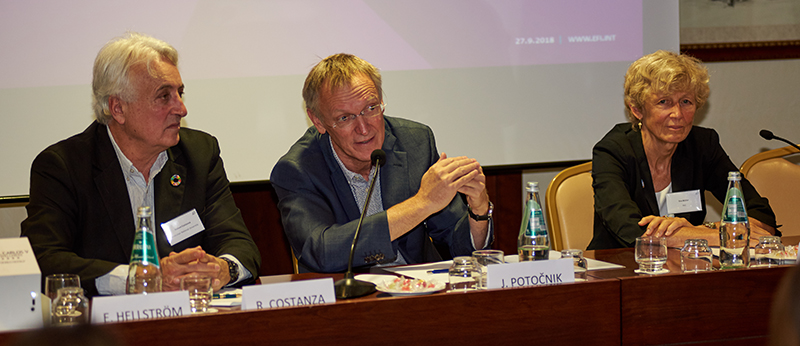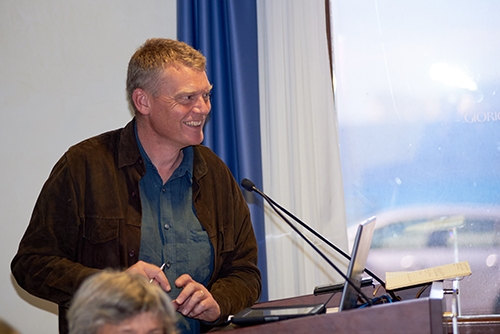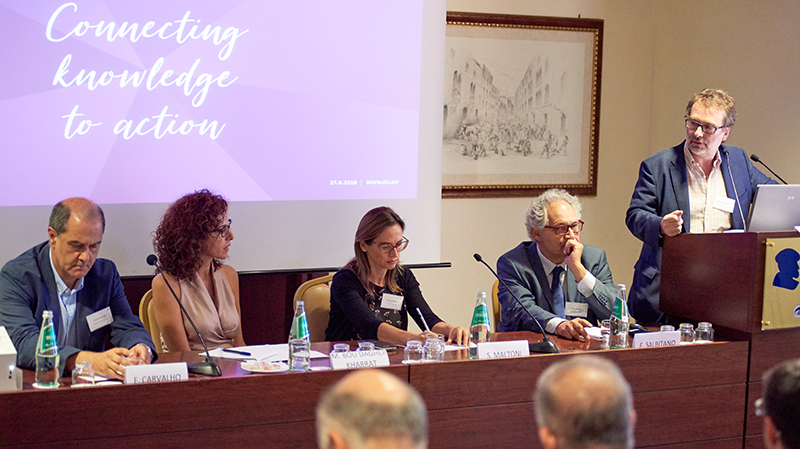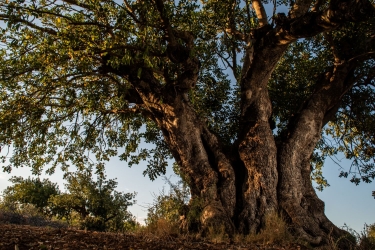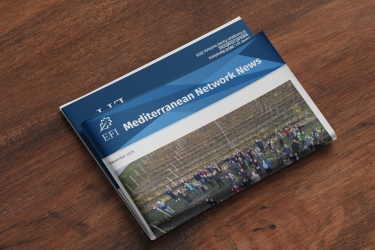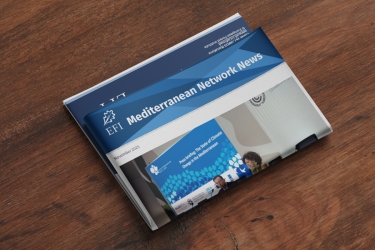Highlights from the 2018 EFI Annual Conference
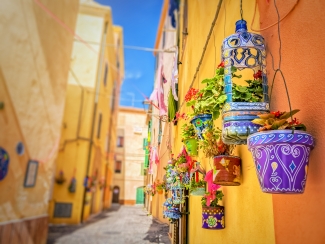
The EFI 2018 Annual Conference took place in Alghero, Sardinia on 26-28 September 2018 and it was organised together with the EFI’s Project Centre on Mountain Forests (MOUNTFOR), the University of Molise and the University of Tuscia.
In the context of the Annual Conference, we organised a seminar ‘Forests: Interconnecting Sustainable Development Goals to Action’ on 27 September. During the Scientific Seminar we discussed the need for systemic change to build a sustainable future within the new framework of the SDGs, and how forests, sustainable forestry and forest-based solutions can connect the SDGs to action.
Discussions focused on how to put together equity, economy and the environment, so we can build a sustainable future where human and ecosystem wellbeing as well as economic prosperity are at the core of global policy. The transition to bioeconomy, the need for indicators that allow us to measure progress in wellbeing, and the need for evaluation of ecosystem services were all highlighted.
Watch the recording of the event.
The seminar was opened by Phil Hogan, European Commissioner for Agriculture and Rural Development who said that “forests and the forestry sector hold many answers to our shared societal and environmental challenges.” To balance the opportunities with the challenges there is a pressing need to ensure the long-term sustainable management and development of forests.
He said forests are part of the answer to many of the EU’s most important policy questions, and congratulated EFI for its contribution to this work. “I urge you to closely examine the EU’s policy proposals for the coming decade to see where you can add value and find new opportunities.”
Eeva Hellström from SITRA set the scene, exploring the idea of a sustainable economy.
Janez Potocnik, Co-Chair, UN International Resource Panel, looked at the need for a new economic model as the basis for sustainable development. “We can’t afford to think short term anymore,” he said. He pointed out that trade-offs among various SDGs are unavoidable. “But if you want to mitigate, focus on sustainable and responsible consumption. Resources are the missing link.”
Robert Costanza from Australian National University focused on how we can make the UN SDGs work for sustainable well-being. “We need a more positive vision and narrative about a sustainable and desirable economy in society in the rest of nature, a wellbeing economy”, he said.
Eva Müller from FAO explained how the branches of forest and trees reach out across the SDGs. Carol Colfer looked at the situation the other way around, presenting the work being done on a publication, "Sustainable Development Goals: Their impacts on forests and people" for IUFRO's Special Project on World Forests, Society and Environment (IUFRO-WFSE).
Lauri Hetemäki from EFI explored the priorities for a circular bioeconomy strategy. He concluded that the most important was creating a science-based circular bioeconomy narrative.
Narrative was focused on in a lively panel discussion moderated by Tom Heap, BBC, which looked at the stories that people tell, and how we can use that understanding in order to make more of a compelling narrative for forestry.
After asking his panellists (Elisabetta Tola, Christine Farcy, Salina Abraham and Sonya Angelica Diehn) to describe their forest heroes, they dived into the tricky issue of storytelling, and how to reach an increasingly urban population which is missing the connection to nature. We need to be able to convey simple narratives with complex ideas: one of the big opportunities is solution journalism, with the caveat of “show, don’t tell”. We need to show how great forests can be.
The afternoon session narrowed the focus to the Mediterranean, to look at Mediterranean Forestry for sustainable development: Innovating with nature.
Grammenos Mastrojeni from Italian Aid - Cooperazione allo Sviluppo, Ministry of Foreign Affairs, took the policy maker perspective on the geo-strategic value of vegetation cover, looking at the degradation-insecurity-migration nexus. We need to make nature a source of predictable income through ecosystem and land-based approaches, he said.
Ricardo Valentini from the Univeristy of Tuscia focused on the role of forests in addressing climate change in the Mediterranean. Mediterranean forests have a large mitigation potential due to soil accumulation and biomass growth.
This was followed by an interesting panel discussion (Magda Bou Dagher Kharrat, Francisco Carvalho, Sara Lucia Maltoni, Fabio Salbitano) which explored how to create value from Mediterranean forests for rural and urban communities.
Finally, Donatella Spano from Regione Sardegna summed up the seminar with her concluding remarks.
>> View the full programme and speaker presentations
>> Read Commissioner Hogan's speech
Several side events were also organised:
“Research that matters: applying tree genomics to sustainable development” was organised by the EVOLTREE network and the European Forest Genetic Resources Programme (EUFORGEN). Read their report: Exploring new approaches to tree breeding and conservation
"Roots to riches: Genetics & products of stone pine & Mediterranean oaks" was organised jointly by the EFI Mediterranean Facility (EFIMED), the European Forest Genetic Resources Programme (EUFORGEN) and the EVOLTREE network. Read their report: “Wood first” takes a back seat in Sardinia
